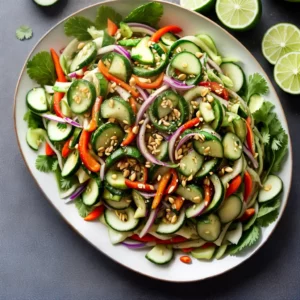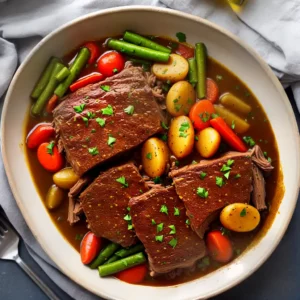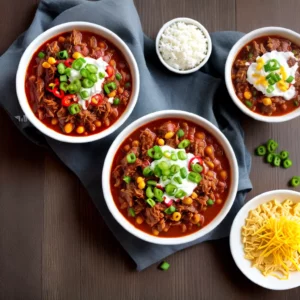As an expert chef, I often get asked about the best practices for marinating chicken. Marinating is a fantastic technique to enhance the flavor and tenderness of chicken, transforming it into a mouthwatering dish. But how long should you marinate chicken? Is there a point where marinating for too long becomes detrimental to the final result?
When it comes to marinating chicken, finding the right balance is key. You want to marinate it long enough for the flavors to penetrate the meat and tenderize it, but not too long that it becomes mushy. In this article, I will guide you through the optimal marination time, the role of acids in marinating chicken, and some tips for safe and delicious marinating.
Key Takeaways:
- Marinating chicken enhances its flavor and tenderness.
- The recommended marinating time for chicken is usually 2-3 hours, with a maximum of 4 hours.
- Acids, such as vinegar or lemon juice, help tenderize the meat and infuse it with flavor.
- Handle marinated chicken safely by refrigerating it and discard leftover marinade that has come into contact with raw chicken.
- Experiment with different marinating techniques and flavors to create unique and delicious chicken dishes.
The Importance of Timing in Marinating Chicken
As an expert chef, I know that timing is a crucial element when it comes to marinating chicken. It is important to find the right balance between allowing the chicken to absorb the flavors and tenderize, without leaving it in the marinade for too long, which can result in a mushy texture. Following marinating guidelines and recommendations is key to achieving the best results.
Most recipes suggest marinating chicken for 2-3 hours, with a maximum of 4 hours. This time frame allows the chicken to fully benefit from the marinade while preventing excessive breakdown of proteins. It is important to marinate the chicken in the refrigerator to maintain food safety and prevent the growth of bacteria.
For smaller cuts of chicken, such as tenders or thin strips, a shorter marinating duration of 15 to 30 minutes can still impart delicious flavors. It’s a great option when you’re short on time but still want to enhance the taste of your dish. Experimenting with different marinating techniques and finding the right timing can lead to unique and mouthwatering results.
| Marinating Tips |
|---|
| Follow the recommended marinating time frame provided in recipes. |
| Ensure the chicken is fully covered and immersed in the marinade. |
| Always marinate chicken in the refrigerator to prevent bacterial growth. |
| Experiment with different marinating techniques and timings to discover your preferred flavors. |
| Handle marinated chicken safely to avoid cross-contamination with other foods. |
The Role of Acids in Marinating Chicken
When it comes to marinating chicken, acids play a crucial role in enhancing both the flavor and tenderness of the meat. These acidic ingredients are key components in creating a delicious and well-balanced marinade.
Vinegar, lemon juice, lime juice, and yogurt are commonly used acidic ingredients in chicken marinades. These acids have the ability to break down the proteins in the chicken, resulting in a tender and juicy final product. They also infuse the meat with a burst of flavor, creating a more enjoyable eating experience.
It is important, however, to balance the acids with other flavor enhancers in order to create a harmonious marinade. Herbs, spices, and oils can help round out the flavors and prevent the marinade from becoming overpowering. Experimenting with different combinations of acids and other ingredients can lead to the creation of unique and delicious marinades.

The Role of Acids in Marinating Chicken
| Acidic Ingredient | Flavor Profile |
|---|---|
| Vinegar | Tangy and slightly acidic |
| Lemon Juice | Bright and citrusy |
| Lime Juice | Zesty and refreshing |
| Yogurt | Creamy and tangy |
By understanding the role of acids in marinating chicken and experimenting with different combinations of ingredients, you can elevate the flavor and tenderness of your chicken dishes. Whether you’re grilling, baking, or frying, a well-marinated chicken can take your meal to the next level.
The Effects of Marinating Chicken for Too Long
As an expert chef, I understand the importance of marinating chicken for the right amount of time to achieve the perfect flavor and tenderness. However, it is equally crucial to avoid marinating chicken for too long, as this can have negative effects on the texture of the meat.
When chicken is marinated for an extended period, the acids in the marinade, such as vinegar or lemon juice, can break down the proteins in the meat excessively. This can result in a mushy texture and a loss of the natural juiciness of the chicken. It is essential to follow the recommended marinating time limits to ensure the best texture and overall quality of the meat.
To avoid marinating chicken for too long, it is recommended to marinate poultry for 2-3 hours, with a maximum of 4 hours. Beyond this timeframe, the texture of the meat can be significantly impacted. It is important to note that smaller cuts of chicken may require a shorter marinating time, as they tend to absorb flavors more quickly.
| Marinating Time | Effects on Chicken Texture |
|---|---|
| 2-3 hours (recommended) | Enhanced tenderness and flavor |
| 4 hours (maximum) | Possible loss of texture and quality |
| Above 4 hours | Mushy texture and compromised quality |
Ensuring the proper marinating time is crucial for achieving the desired results when cooking chicken. By following the recommended marinating time limits, you can enhance the flavor, tenderness, and overall quality of your marinated chicken dishes.
Recommended Marinating Times for Chicken
As an expert chef, I understand the importance of marinating chicken for the perfect flavor and tenderness. The recommended marinating time for chicken is generally 2-3 hours, with a maximum of 4 hours. This allows the chicken to absorb the flavors and become more tender. However, larger cuts and bone-in pieces may require a longer marinating time to ensure that the flavors penetrate the meat thoroughly.
It is important to follow the specific marinating times provided in recipes to achieve the desired results. Different marinating methods and techniques may also require different time frames. For example, if you’re using a brine or injecting marinade into the meat, you may need to adjust the marinating time accordingly. Always read and follow the instructions carefully to ensure the best outcome.
When marinating chicken, it’s important to be mindful of any restrictions or limitations. While marinating for too short a time may result in less flavor absorption, marinating for too long can have negative effects on the texture of the meat. The acids in the marinade can break down the proteins too much, leading to a mushy texture. To avoid this, it’s best to stick to the recommended marinating times and avoid exceeding the maximum time frame.
Table: Marinating Times for Different Chicken Cuts
| Chicken Cut | Marinating Time |
|---|---|
| Breasts (Boneless, Skinless) | 2-3 hours |
| Thighs (Boneless, Skinless) | 2-4 hours |
| Drumsticks (Bone-In) | 3-4 hours |
| Whole Chicken (Cut into Pieces) | 4-6 hours |
Remember, marinating times may vary depending on the size and thickness of the chicken pieces. Smaller cuts, such as tenders or thin strips, can benefit from shorter marinating times of 15 to 30 minutes, while larger cuts may require longer marinating durations. It’s always a good idea to experiment with different marinating times and techniques to find what works best for your desired flavors and textures.
So, the next time you’re marinating chicken, keep these recommended marinating times in mind for the best results. Whether you’re grilling, baking, or frying, a well-marinated chicken will bring out the delicious flavors and make your dish a standout. Happy marinating!
Tips for Marinating Chicken Safely
When it comes to marinating chicken, safety should always be a top priority. By following a few simple guidelines, you can ensure that your marinated chicken is delicious and free from any potential health risks.
Marinating in the Refrigerator
One of the most important safety tips for marinating chicken is to always marinate it in the refrigerator. This helps to prevent bacterial growth and reduces the risk of foodborne illnesses. It is recommended to place the marinating chicken on the bottom shelf of the fridge to prevent any possible leaks or spills onto other foods.
Disposing of Leftover Marinade
Another crucial safety measure is to properly handle and dispose of leftover marinade that has come into contact with raw chicken. Do not use this marinade for other purposes or save it for future use, as it may be contaminated with harmful bacteria. It is best to discard any used marinade to prevent cross-contamination and ensure food safety.
| Marinating Safety Tips |
|---|
| Marinate chicken in the refrigerator |
| Place marinating chicken on the bottom shelf to prevent leaks |
| Do not reuse or save marinade that has come into contact with raw chicken |
| Properly handle and dispose of leftover marinade |
“By following proper marinating safety precautions, you can enjoy delicious marinated chicken without compromising your health.” – Chef
By adhering to these marinating safety rules, you can enjoy the flavorful benefits of marinated chicken while minimizing any potential risks. Remember to always marinate chicken in the refrigerator, dispose of leftover marinade properly, and practice good hygiene when handling raw chicken. By taking these precautions, you can create delicious and safe marinated chicken dishes that are sure to impress your guests.

Alternative Marinating Times for Smaller Cuts of Chicken
As an expert chef, I understand the importance of marinating chicken to enhance its flavor and tenderness. While the recommended marinating time for chicken is generally 2-3 hours, there are variations depending on the size and cut of the chicken. For smaller cuts, such as tenders or thin strips, you can benefit from shorter marinating times. In fact, even just 15 to 30 minutes of marinating can impart flavor to these smaller pieces of meat.
If you find yourself pressed for time but still want to infuse your chicken with delicious flavors, these shorter marinating times can be a great hack. It allows the marinade to penetrate the chicken and enhance its taste without requiring hours of marinating. This is particularly useful for quick and easy meals when you need to get dinner on the table in a hurry.
To ensure that your chicken absorbs the flavors effectively during shorter marinating times, gently massage the marinade into the meat. This will help it to distribute evenly and infuse the chicken with deliciousness. Experimenting with different marinating times and techniques can lead to unique flavors and culinary creations, so don’t be afraid to try new things!
Table: Marinating Times for Smaller Cuts of Chicken
| Cut of Chicken | Recommended Marinating Time |
|---|---|
| Tenders or thin strips | 15-30 minutes |
| Cubed chicken | 30 minutes – 1 hour |
| Boneless, skinless chicken breasts | 1-2 hours |
Remember, while these shorter marinating times can work well for smaller cuts of chicken, it’s important to adjust the marinating time based on the size and thickness of the meat. The goal is to allow enough time for the flavors to permeate the chicken without over-marinating and losing texture. So go ahead, get creative with your marinating times, and enjoy the delicious results!
Freezing Marinated Chicken for Future Use
As an expert chef, I know the importance of planning ahead and maximizing the use of ingredients. When it comes to marinated chicken, freezing it for future use is a great way to save time and ensure you always have flavorful options on hand. Freezing marinated chicken is a simple process that can be done properly to maintain the quality and taste of the meat.
“Freezing marinated chicken is a convenient way to have marinated chicken on hand for quick and easy meals.”
To freeze marinated chicken, start by placing the chicken into a resealable plastic bag. Label the bag with the contents and date to help you keep track. Remove as much air as possible from the bag before sealing it tightly. Lay the bag flat in the freezer to allow for even freezing and to save space.
When you’re ready to use the frozen marinated chicken, thaw it overnight in the refrigerator. This slow thawing process helps to maintain the texture and integrity of the meat. Once thawed, you can cook the chicken according to your desired method, whether it’s grilling, baking, or sautéing.
Remember, freezing marinated chicken is a great way to plan ahead, but it’s important to use the frozen chicken within a month for the best quality. By freezing marinated chicken, you can always have delicious, tender, and flavorful meals ready in no time.
| Benefits of Freezing Marinated Chicken | Considerations for Freezing Marinated Chicken |
|---|---|
|
|
Reusing and Handling Leftover Marinade
As an expert chef, I understand the importance of proper marinating procedures and the factors to consider when handling leftover marinade. It is crucial to follow specific marinating restrictions to ensure food safety and prevent cross-contamination. When it comes to reusing and handling leftover marinade, there are a few essential guidelines to keep in mind.
First and foremost, it is crucial to remember that leftover marinade should not be reused or saved for future use if it has come into contact with raw chicken. This is because the marinade may contain harmful bacteria from the raw meat. Instead, I recommend discarding the used marinade to avoid any potential health risks.
If you plan to use the marinade for basting or as a sauce, it is important to boil it first to destroy any bacteria.
If you do wish to use the marinade for basting or as a sauce, it is essential to take the necessary precautions to ensure food safety. Before using the leftover marinade, it should be boiled first to destroy any bacteria that may be present. Bringing the marinade to a rolling boil for a few minutes will help eliminate any potential pathogens and make it safe for consumption.
Lastly, it is crucial to handle leftover marinade with care to prevent cross-contamination. After marinating chicken, make sure to discard any marinade that has come into contact with raw meat. This includes avoiding using the same marinade for cooked meat or saving it for future use. By properly handling and disposing of leftover marinade, you can minimize the risk of foodborne illnesses and ensure the safety of your meals.

| Marinating Procedure | Handling Leftover Marinade | Marinating Restrictions |
|---|---|---|
| Properly marinate chicken in the refrigerator. | Discard leftover marinade that has come into contact with raw chicken. | Avoid reusing marinade that has been in contact with raw chicken. |
| Use a separate container or plastic bag to marinate chicken. | Boil leftover marinade before using it for basting or as a sauce. | Handle leftover marinade with care to prevent cross-contamination. |
| Massage the marinade into the chicken for even flavor distribution. | Avoid using leftover marinade for cooked meat or saving it for future use. | Follow marinating restrictions to ensure food safety. |
Marinating Chicken: Flavor and Moisture Infusion
As an expert chef, I can attest to the numerous benefits of marinating chicken. When done correctly, marinating can significantly enhance the flavor and moisture of the meat, resulting in a truly delicious and tender dish. By combining various ingredients, such as herbs, spices, and sauces, you can create a unique marinade that infuses the chicken with delightful flavors.
Marinating chicken not only adds taste but also helps to retain moisture during cooking. The marinade acts as a protective barrier, preventing the chicken from drying out and resulting in a more succulent and juicy final product. Whether you’re grilling, baking, or sautéing the chicken, marination is a crucial step in achieving the desired texture and taste.
One of the keys to successful marination is to ensure that the chicken is fully coated in the marinade. This allows the flavors to penetrate the meat evenly, resulting in a more flavorful and well-rounded dish. Massage the marinade into the chicken to ensure maximum absorption and flavor infusion. Remember to follow the recommended marinating times and techniques to achieve optimal results.

So, the next time you’re preparing chicken, don’t skip the marinating step. Take the time to create a well-balanced marinade with quality ingredients. Experiment with different flavors and herbs to create your own signature marinades. Enjoy the process and let the flavors infuse the chicken, resulting in a mouthwatering and tender culinary experience.
Best Practices for Marinating Chicken
To achieve the best results when marinating chicken, follow these best practices:
- Fully immerse the chicken in the marinade, ensuring it is fully covered. This allows the flavors to penetrate the meat evenly.
- Use food-grade containers or sealable plastic bags to store the marinated chicken in the refrigerator. Ensure they are sealed tightly to prevent leaks and cross-contamination with other foods.
- Follow the recommended marinating times and techniques provided in recipes. Different marinades and cuts of chicken may require specific guidelines for optimal flavor and tenderness.
- Massage the marinade into the chicken to help it penetrate the meat further. This ensures that every bite is infused with delicious flavors.
- Don’t overcrowd the chicken in the container during marinating. Allow enough space for the marinade to flow around the chicken pieces for maximum flavor distribution.
By following these best practices, you can ensure that your marinated chicken turns out flavorful, tender, and safe to consume.
Additional Tips for Marinating Chicken
Here are some extra tips to take your marinated chicken to the next level:
- Experiment with different flavors and ingredients to create unique marinades. Mix and match herbs, spices, oils, and other seasonings to customize your chicken’s taste profile.
- Consider using brines, injections, or vacuum sealers to explore different marinating techniques. These methods can enhance the flavor and tenderness of the chicken in exciting ways.
- Ensure that the marinade ingredients are of high quality, using fresh herbs, spices, and oils. This will contribute to a more flavorful and satisfying end result.
- Take care to handle the marinated chicken safely to prevent foodborne illnesses. Follow proper hygiene practices and discard any leftover marinade that has come into contact with raw chicken.
Expert Quote:
As an expert chef, I always recommend following best practices when marinating chicken. By fully immersing the chicken in the marinade, using the right containers, and adhering to recommended marinating times, you can achieve a delicious and tender end result. Don’t be afraid to get creative with flavors and techniques, but always prioritize food safety to ensure a fantastic dining experience.
Table: Recommended Marinating Times for Different Cuts of Chicken
| Chicken Cut | Recommended Marinating Time |
|---|---|
| Boneless, skinless chicken breasts | 2-3 hours |
| Chicken tenders or smaller cuts | 30 minutes to 1 hour |
| Bone-in chicken thighs | 4-6 hours |
| Whole chicken | 4-12 hours |

The Role of Acids in Chicken Marination
As an expert chef, I understand the importance of acids in the marination process of chicken. Acids play a crucial role in breaking down the proteins and tenderizing the meat, resulting in a more flavorful and tender final product. When marinating chicken, it’s essential to include acidic ingredients in your marinade to achieve the desired texture and taste.
Common acidic ingredients used in chicken marinades include vinegar, lemon juice, lime juice, yogurt, and various types of vinegar. These ingredients not only help to break down the proteins but also infuse the chicken with flavor. The acidic nature of these ingredients helps to enhance the tenderness of the meat, making it more enjoyable to eat.
However, it’s important to balance the acidity with other ingredients such as herbs, spices, and oils. This will help create a well-rounded marinade that brings out the best flavors in the chicken. Experimenting with different combinations of acidic and flavor-enhancing ingredients can lead to unique and delicious marinades.
The Benefits of Acids in Chicken Marination
Acids help to break down the proteins in chicken, resulting in a tender and flavorful final product.
Acidic Ingredients commonly used in Chicken Marination
| Ingredient | Effect on Chicken |
|---|---|
| Vinegar | Tenderizes the meat and adds a tangy flavor |
| Lemon juice | Provides a citrusy freshness and helps to tenderize the meat |
| Lime juice | Infuses the chicken with a zesty flavor and enhances tenderness |
| Yogurt | Tenderizes the meat and adds a creamy texture |
By understanding the role of acids in chicken marination and utilizing them effectively in your marinades, you can elevate the flavor and tenderness of your chicken dishes. Remember to experiment with different combinations of ingredients to create unique and delicious marinades that suit your taste preferences.
Exploring Different Chicken Marination Techniques
As an expert chef, I have experimented with various chicken marination techniques to create unique and flavorful dishes. In this section, I will share some marinating hacks and factors to consider when choosing the right technique for your chicken. Whether you prefer a brine, injecting marinade, or using a vacuum sealer, each method offers its own benefits and can take your marinated chicken to the next level.
Brining: Enhancing Flavor and Moisture
One popular technique is brining, which involves soaking the chicken in a solution of salt, sugar, herbs, and spices. This method not only infuses the chicken with flavor but also helps it retain moisture during cooking. To create a brine, dissolve salt and sugar in water and add your preferred seasonings. Submerge the chicken in the brine and refrigerate for several hours or overnight for best results. Rinse the chicken before cooking to remove excess saltiness.
Injecting Marinade: Maximizing Flavor Distribution
Injecting marinade directly into the chicken can be a game-changer when it comes to flavor distribution. Using a flavor injector, fill the needle with your desired marinade and inject it into different parts of the chicken, ensuring it reaches the deeper layers. This technique is particularly effective for larger cuts of chicken, such as whole chickens or turkey, as it helps to infuse flavor throughout the meat. Be sure to follow food safety guidelines and properly clean and sanitize your injector before and after use.
Vacuum Sealing: Accelerating Marination
If time is of the essence, vacuum sealing can be an excellent technique to speed up the marination process. By removing the air from the packaging, the marinade is forced into the chicken, allowing for faster flavor absorption. Place the chicken and marinade in a vacuum-sealed bag and use a vacuum sealer to remove the air and seal the bag. The chicken should marinate for the recommended time, but the flavors will penetrate more quickly compared to traditional marination methods. Remember to use a vacuum sealer that is suitable for marinating liquids.
Experimenting with different marinating techniques can help you unlock new flavors and textures in your chicken dishes. Whether you choose to brine, inject marinade, or vacuum seal, each method offers its own advantages and can elevate your culinary creations. Get creative in the kitchen, have fun exploring different techniques, and enjoy the delicious results of your marinated chicken.
Achieving the Perfect Marinated Chicken: Tips and Tricks
As an expert chef, I have learned some valuable tips and tricks for achieving the perfect marinated chicken. These techniques will help you create flavorful and tender chicken dishes that will impress your family and friends. Let’s dive into the world of marinating and discover some insider secrets.
Marinating Tips
When it comes to marinating chicken, one important tip is to use quality ingredients. Fresh herbs, spices, and oils can make a significant difference in the flavor of your marinade. Don’t be afraid to experiment with different combinations to create unique and delicious flavors.
Another tip is to ensure that your chicken is fully coated in the marinade. This will help to evenly distribute the flavors throughout the meat. Take the time to massage the marinade into the chicken, allowing it to penetrate and infuse the meat with its deliciousness.
Marinating Techniques
There are various marinating techniques that you can try to enhance the flavor and tenderness of your chicken. One popular technique is using a brine, which involves soaking the chicken in a saltwater solution before marinating. This not only adds flavor but also helps to keep the chicken moist during cooking.
Injecting marinade into the meat is another technique that can amp up the flavor. Using a marinade injector, you can add the marinade directly into the chicken, allowing it to penetrate deep into the meat. This is especially useful for larger cuts of chicken.
Marinating Hacks
If you’re short on time but still want to infuse your chicken with flavor, there are some marinating hacks you can try. One hack is to use a vacuum sealer to speed up the marinating process. By vacuum-sealing the chicken with the marinade, you can significantly reduce the marinating time while still achieving flavorful results.
Another hack is to use acidic ingredients such as citrus juices or vinegar, as they can help to tenderize the meat more quickly. Just be mindful not to marinate the chicken for too long, as it can result in a mushy texture. Remember to follow the recommended marinating times for the best results.
With these tips, techniques, and hacks in your culinary arsenal, you’ll be well on your way to creating the perfect marinated chicken. Whether you’re grilling, roasting, or pan-frying, your chicken dishes will be bursting with flavor and tenderness. So go ahead, get creative, and savor the deliciousness of marinated chicken.
Conclusion
As an expert chef, I have explored the world of marinating chicken and discovered its wonderful benefits. Marinating chicken is an excellent way to enhance its flavor and tenderness, creating a truly delectable dish. By following the recommended marinating times and techniques, you can achieve the perfect balance of flavors and textures.
Marinating impacts the chicken in two key ways: flavor infusion and tenderness. The marinade ingredients, including acids like vinegar or lemon juice, work their magic by breaking down proteins and infusing the meat with delicious flavors. The result is a tender and succulent chicken that will leave your taste buds craving for more.
However, it is important to be mindful of marinating time constraints. While marinating chicken for too long can lead to a loss of texture, marinating it for the right amount of time allows the flavors to fully develop without compromising the meat’s integrity. Remember to follow the recommended marinating times and guidelines to ensure the best results.
So, whether you prefer a tangy citrus marinade or a savory herb-infused one, marinating chicken offers a world of culinary possibilities. Embrace the art of marinating, experiment with different flavors and techniques, and create your own signature marinated chicken recipes that will impress your family and friends.
FAQ
How long can you marinate chicken?
Most chicken recipes recommend marinating for 2-3 hours, with a maximum of 4 hours.
What is a marinade made of?
A marinade consists of cooking oil, an acidic liquid, and flavoring ingredients.
Why is chicken a popular choice for marinating?
Chicken pairs well with a variety of flavors and cooking methods, making it a versatile choice for marinating.
How do acids tenderize and infuse flavor in marinated chicken?
Acids such as vinegar, lemon juice, lime juice, and yogurt break down proteins in the chicken, resulting in a tender and flavorful final product.
What happens if you marinate chicken for too long?
Marinating chicken for too long can result in a mushy texture due to the acids breaking down the proteins too much.
How long should I marinate smaller cuts of chicken?
Smaller cuts of chicken, such as tenders or thin strips, can benefit from a shorter marinating time of 15 to 30 minutes.
Can marinated chicken be frozen?
Yes, you can freeze marinated chicken for up to one month in a labeled resealable plastic bag.
Can I reuse leftover marinade that has come into contact with raw chicken?
No, leftover marinade that has come into contact with raw chicken should not be reused or saved for future use. If using it for basting or as a sauce, it should be boiled first to destroy any bacteria.
How can I achieve the best marinated chicken?
To achieve the best results, fully immerse the chicken in the marinade, use quality ingredients, and follow recommended marinating times and techniques.
Source Links
- https://www.allrecipes.com/how-long-can-you-marinate-chicken-7503304
- https://www.bonappetit.com/story/how-long-to-marinate-meat
- https://www.foodnetwork.com/how-to/packages/food-network-essentials/how-long-to-marinate-chicken
Related Recipes:
 Marinating Chicken: How Long Is Too Long?
Marinating Chicken: How Long Is Too Long?
 How to Store Chicken Safely
How to Store Chicken Safely
 How to Defrost Chicken Safely
How to Defrost Chicken Safely
 Baked Bone-In Chicken Thighs: A Step-by-Step Guide
Baked Bone-In Chicken Thighs: A Step-by-Step Guide
 How to Store Meat for Freshness and Safety
How to Store Meat for Freshness and Safety
 Savory Whole Chicken Crock Pot Recipe You’ll Love!
Savory Whole Chicken Crock Pot Recipe You’ll Love!
 How to Cut Up a Chicken Breast for Recipes
How to Cut Up a Chicken Breast for Recipes
 How to Store Chicken Safely
How to Store Chicken Safely








